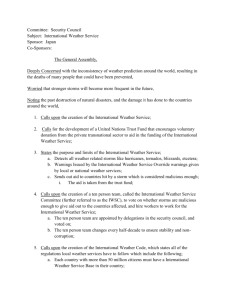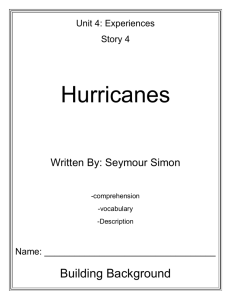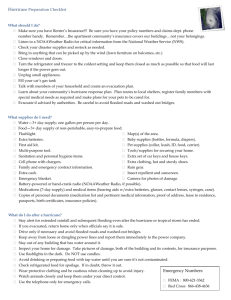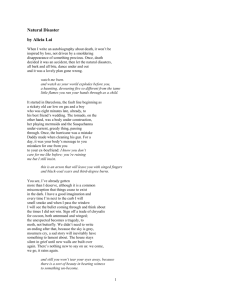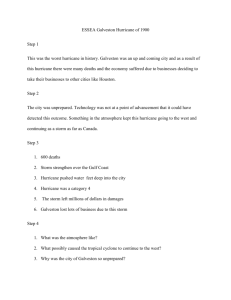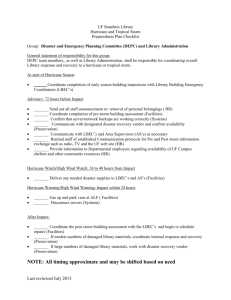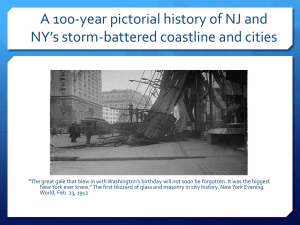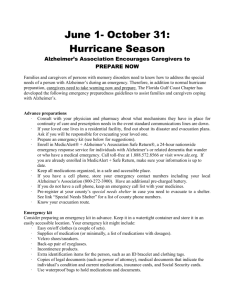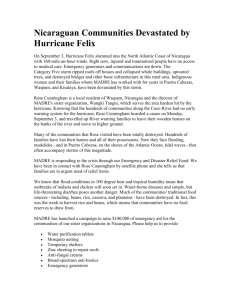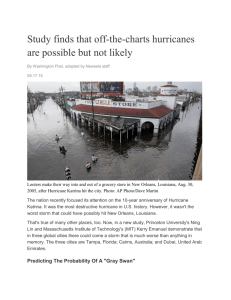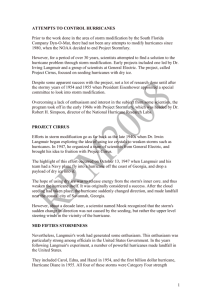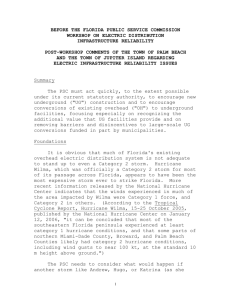A Hurricane Named Dementia
advertisement
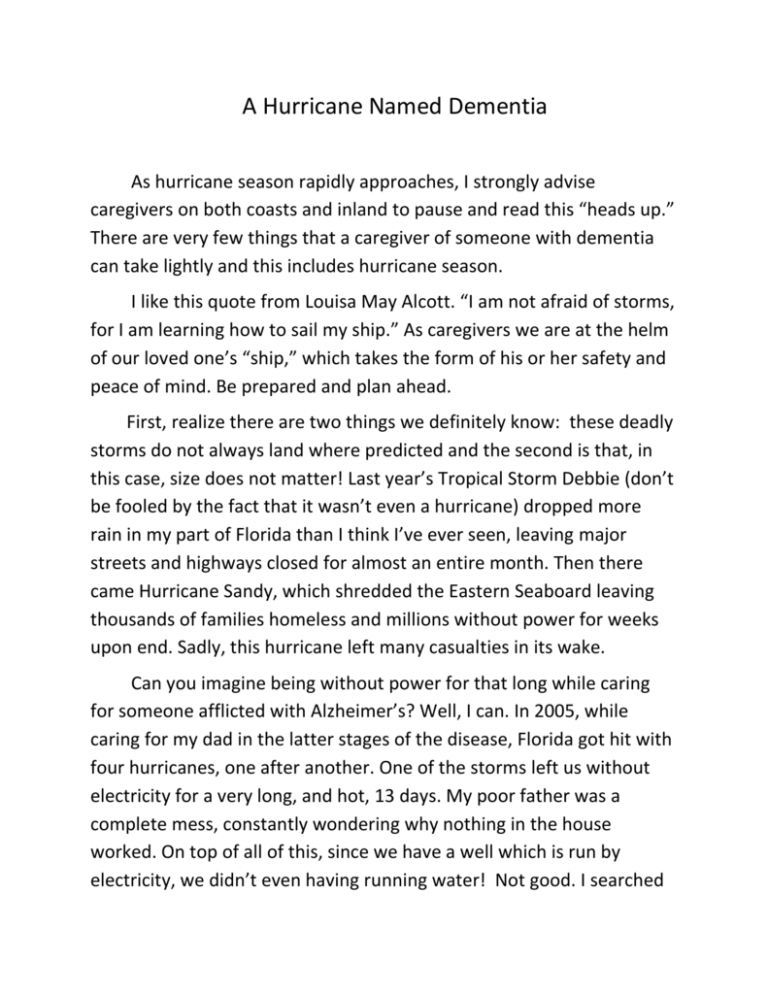
A Hurricane Named Dementia As hurricane season rapidly approaches, I strongly advise caregivers on both coasts and inland to pause and read this “heads up.” There are very few things that a caregiver of someone with dementia can take lightly and this includes hurricane season. I like this quote from Louisa May Alcott. “I am not afraid of storms, for I am learning how to sail my ship.” As caregivers we are at the helm of our loved one’s “ship,” which takes the form of his or her safety and peace of mind. Be prepared and plan ahead. First, realize there are two things we definitely know: these deadly storms do not always land where predicted and the second is that, in this case, size does not matter! Last year’s Tropical Storm Debbie (don’t be fooled by the fact that it wasn’t even a hurricane) dropped more rain in my part of Florida than I think I’ve ever seen, leaving major streets and highways closed for almost an entire month. Then there came Hurricane Sandy, which shredded the Eastern Seaboard leaving thousands of families homeless and millions without power for weeks upon end. Sadly, this hurricane left many casualties in its wake. Can you imagine being without power for that long while caring for someone afflicted with Alzheimer’s? Well, I can. In 2005, while caring for my dad in the latter stages of the disease, Florida got hit with four hurricanes, one after another. One of the storms left us without electricity for a very long, and hot, 13 days. My poor father was a complete mess, constantly wondering why nothing in the house worked. On top of all of this, since we have a well which is run by electricity, we didn’t even having running water! Not good. I searched everywhere but, unfortunately for us, there wasn’t a generator left in the entire state of Florida! We had no choice. We had to wait it out. Lesson learned! If you find yourself in a similar situation, don’t expect to rely on other people for assistance as they will likely be caught up in their own difficulties and drama. In the event of an impending hurricane or storm, individuals with Alzheimer’s disease or any form of dementia, will most likely be frightened, confused and uncooperative. If making the decision to evacuate becomes necessary, this can prove to be exceedingly difficult for those who are memory impaired, and also for their caregivers. Any change in routine—never mind a change in surroundings—will be very disturbing. Be prepared ahead of time. Research where it is you may need to go. If you have a friend or relative in a safe place, willing to open their home to you, try to get there early enough so that those with dementia can be settled into their new environment before the actual storm hits. Be sure to prepare a checklist for a substitute caregiver, listing patients’ daily habits and anything that may help to soothe them. Consider pets as well. My dad was very fond of our cat and sometimes seemed to care more for her than he did for himself. I assured him time and again that his pet’s welfare would be well looked after, but nevertheless he could often be found obsessing about it. In the event it should become necessary to seek out a public shelter, your local Chamber of Commerce will have all the information needed. But again, do your research ahead of time. Choose a safe harbor that will best suit your needs. Keep in mind; people suffering from dementia do not do well in noisy, crowded places. As I stated earlier, a friend or relative’s house will be a more composed and controlled environment for them. Even the stable individuals that are waiting out the storm in a public shelter are going to be nervous wrecks, worrying if their houses will still be standing when they return home. The anxiety in that building is going to hit the ceiling and these loved ones are going to sense it. Please try to avoid this situation if at all possible. They will handle a homelike environment much better so, again, don’t wait until the last minute to design your plan. Today is the perfect day to start.
